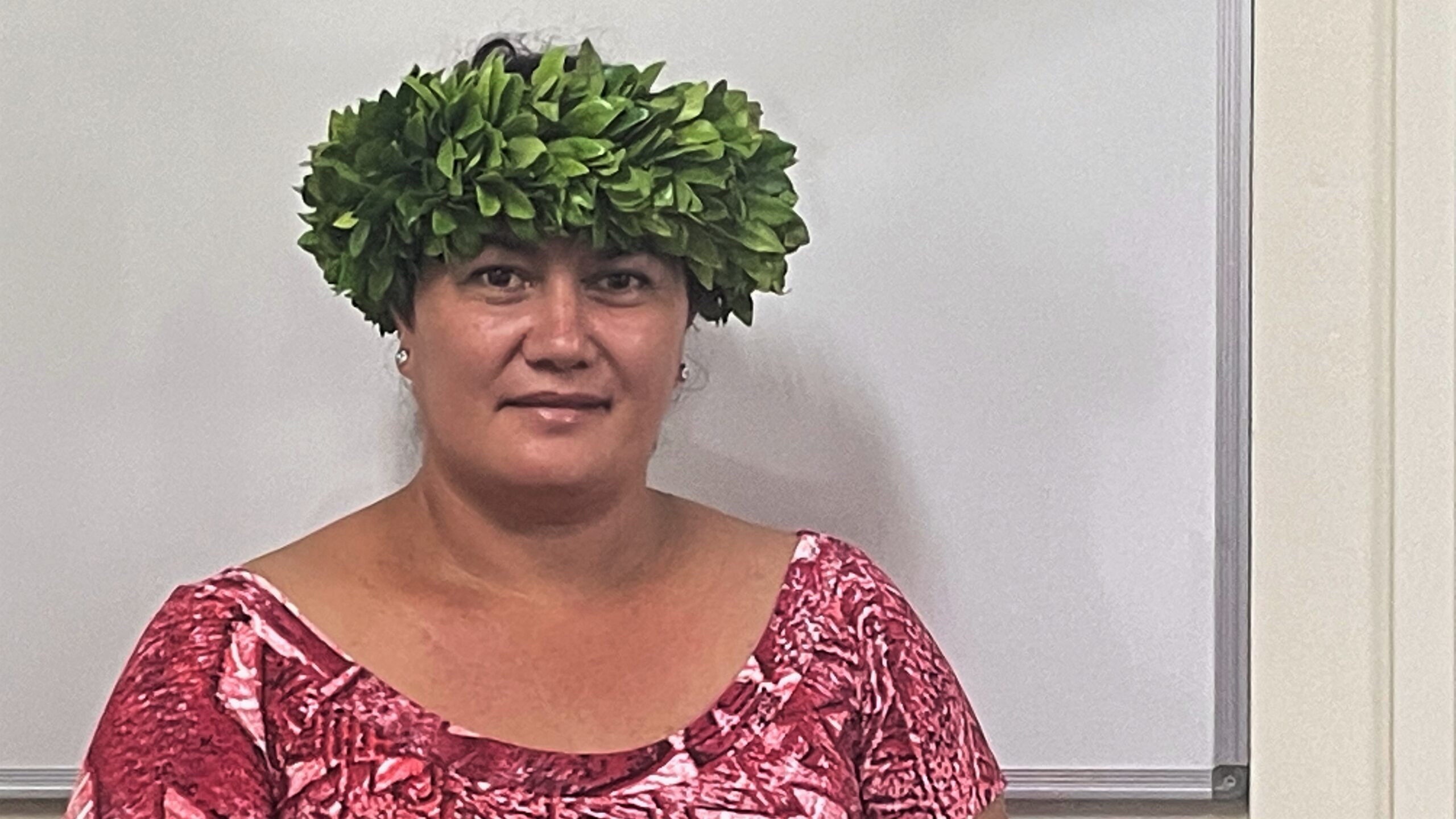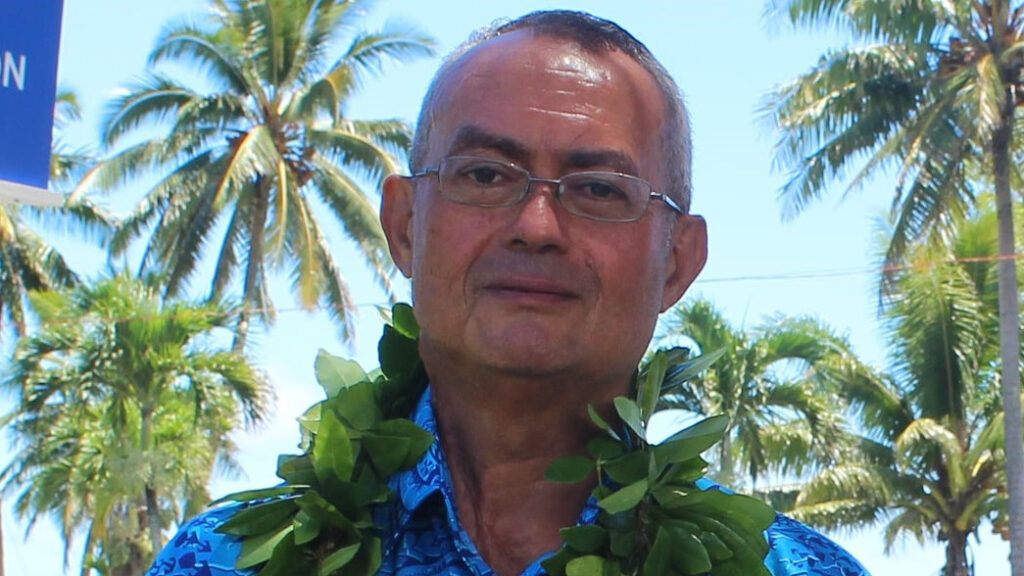Minimum wage increase brings mixed reactions
Saturday 14 May 2022 | Written by Matthew Littlewood | Published in Economy, National

Internal Affairs Minister Rose Brown. Photo: Supplied/22051350
The move to increase the minimum wage in the Cook Islands by 50 cents per hour to $8.50 has drawn a mixed response.
Internal Affairs Minister Rose Brown announced the change in a media statement on Friday.
In her statement, Brown said the determination was influenced by a range of views, submitted to the Government by the Minimum Wage Panel.
“This year’s review also occurs in an uncertain economic environment, shaped by the global Covid-19 pandemic and the government’s economic response plans,” Brown’s statement said.
“Therefore, the question of affordability was central to the review. Much of the consultation among workers and the general public confirmed that cost of living and the provision of a liveable wage were in the primary concerns of many people, particularly in the Pa Enua.”
It is the first increase to the minimum wage in more than two years after the Government decided in April 2021 not to increase the minimum wage from its rate of $8 per hour.

In 2019, the minimum wage was $7.60 per hour, this increased to $8 per hour in July 2020.
Working in accordance with the Employment Relations Act, and guided by terms of reference criteria, the Minimum Wage Panel submitted its recommendations to the Minister earlier this month.
After declining an interview with the Cook Islands News, Minister Rose Brown told Cook Islands Television News on Friday that the country’s minimum wage was actually quite high compared to the rest of the Pacific, and is one of the highest in the region following Australia and New Zealand. In April, the adult minimum wage increased from $20 to $21.20 per hour in New Zealand.
Brown said: “There are those who ask why not just bump it straight up to $10 or more, however the minimum wage needs to go up at a controlled level respectfully so as to not burden businesses, government budgets and basically crash the local economy by jumping up too fast.”
She also mentioned many businesses pay above the minimum wage already so it was “tau” or right to raise the minimum this year.
Senior macroeconomist for Ministry of Finance and Economic Management Tristan Metcalfe, who was a member of the panel, said there was a “broad agreement” among the panel, and the current economic climate was taken into account.
“It’s an increase of about 6.25 per cent, so it’s reasonably significant,” Metcalfe said.
Community representative on the Minimum Wage Panel Nga Teao-Papatua declined to comment on the announcement, but had previously told the Cook Islands News that she would like to see the minimum wage increased to $10 per hour.
Several attempts to contact Cook Islands Workers Association president Tuaine Maunga were unsuccessful.
Prime Foods general manager Daniel Forsyth said the latest increase would not affect many of its staff.
“We pay above minimum wage for most of our staff, except for new employees and part-timers. Most of our staff have been with us for some time because we pay well,” Forsyth said.
Cook Islands Tourism Industry Council president Liana Scott, who is also the general manager of the Muri Beach Club Hotel, said: “It is no surprise that the per hour rate has increased. Difficult of course in times of tight cashflows, but speaking openly most in the tourism industry are paying above this anyway.”

“The cost of living is slowly increasing and it is clear that this needs to be counter acted somehow – some suggestions would be to look at the rate per unit of power as this affects everyone.”
Cook Islands Tourism Corporation chief executive Karla Eggelton said the announcement of the increase in minimum wage has been welcomed by all.
“As an industry, we are already challenged with labour retention. That, coupled with forecast increases to inflation and general cost of living means any changes to improve living standards and help retain our workforce is welcome news,” Eggelton said.
Public Service Commissioner Carl Hunter said most public sector workers in Rarotonga would be paid above minimum wage already, but there were quite a few public service workers in the Pa Enua who earned only the minimum wage.
“Any increase is better than no increase, so it’s good that the Government came to the decision to raise it,” Hunter said.
Asked whether the increase could have been more, Hunter said it was up to the panel to make the determination, and their decision would have been based on several factors, from affordability to the current cost of living.
“It was ultimately up for the panel to decide on the number,” Hunter said.
Minister Brown’s statement says that Government forecasts a need to borrow an additional $71.2 million during 2021/22 to 2023/24 to cover further shortfalls in the forecast financing requirements.
“The medium-term future will focus on business recovery and supporting employers to help get them back into business,” Brown’s statement says.
“I wish to thank the panel for their time in producing a well-balanced report, reflecting the views of the different sectors. We are encouraged by the opening of borders and we look forward with optimism.
“Increasing the minimum wage in a responsible and prudent manner represents one of the many ways to support our country’s economic recovery.”
The changes will come into effect on July 1, while the panel’s report will be released soon.










































